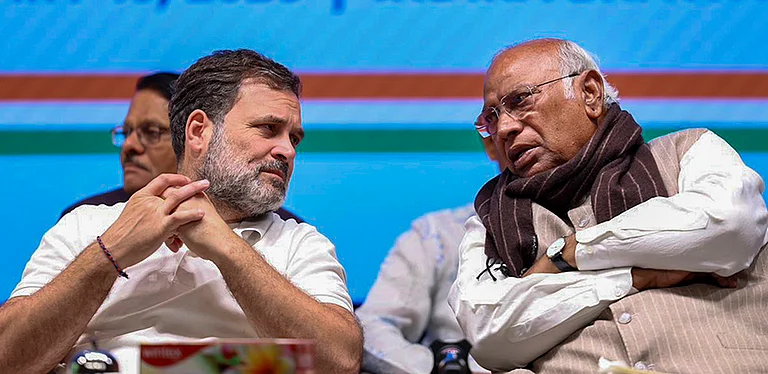From giving mid-entries to spot admissions, and conducting webinars to introducing helpline services, Delhi University has taken several steps to ensure a hassle-free admission process this year.
DU began admissions for over 70,000 seats early this month. This year the university is admitting students through Common University Entrance Test (CUET) scores instead of Class 12 marks. On September 12, the university released its admission-cum-allocation policy -- Common Seat Allocation System (CSAS).
Admission through CSAS is being conducted in three phases — submission of the application form, selection of programmes and filling of preferences, and seat allocation and admission.
The first phase of admission began on September 12, while the second phase is starting on Monday. These two stages will remain open till October 10. DU will notify the date of declaration of the first list of admissions by then.
This year, admissions are underway for 79 UG programmes across 67 colleges, departments and centres, which include 206 combinations for BA programme as well. As the university has adopted a new system for admission, it has taken several steps to ensure the process is carried out smoothly.
Speaking to PTI, Dean (Admission) Haneet Gandhi said the university is ensuring that all queries of students are resolved immediately and they do not face any hurdles. Mid-entry admissions, multiple allotment rounds, spot admissions, grievance redressal committees, webinars and helpline services are among the measures taken by DU to ensure this, she said.
Mid-entry admissions are introduced to help candidates who failed to apply within the stipulated time. Such aspirants can apply by paying Rs 1,000 as mid-entry fee. Gandhi informed that mid-entry admissions will be considered for only those candidates that have already applied but their admission process was stuck midway due to some reason.
This provision is not applicable for performance-based programmes such as BA Hons Music, BSc Physical Education, Health Education and Sports, ECA and Sports Supernumerary quota, she said.
Further, DU has announced that in the first round of seat allotment, each programme in each college will have an additional 20 per cent allocation in the unreserved category, OBC-NCL, EWS categories and 30 per cent in SC, ST, PWBD categories. Gandhi advised applicants to regularly visit the university's admission website and their dashboard for all the updates, schedules and guidelines regarding admissions.
The university has also announced multiple allotment rounds for seats before the spot round. Based on the availability of the seats that arise due to rejections, cancellations and withdrawals, multiple allocation rounds may be announced.
The university will on its portal display the vacant seats before every allocation round. All candidates who have applied for CSAS-2022 will be eligible for all allocation rounds, except those whose admission has been cancelled, Gandhi said. If seats remain vacant after the completion of the regular CSAS-2022 rounds, the university may announce spot round of admission, she said.
"To be considered in a spot admission round, the candidate will have to opt for 'Spot Admission' through his/her dashboard," Gandhi specified. To reddress grievances that may arise during the admission, every college under DU has been asked to establish a grievance redressal committee. Further, a sub-committee of grievance redressal for candidates belonging to special categories will also be established, she said.
The university will conduct a series of public webinars next week to apprise students about the registration process. It has also devised chatbots, helplines numbers and emails to address the admission-related queries of students, she said.
(With PTI inputs)


























